How to Grow Eggplant From Seed
Last updated: February 7, 2026
Introduction
The flavor and texture of eggplant are both fantastic. This beautiful plant, which produces a distinctive fruit in many Italian, Middle Eastern, and Indian dishes, have broad leaves and purple blossoms. It either makes you adore it or hate it. They have a reputation for being a demanding variety of vegetables. Even those who enjoy the creamy flavor of perfectly seasoned eggplant rarely give the idea of planting it in the garden a second thought.
Knowing the demands of these lovely plants will make growing them successfully much easier. Eggplants may be a terrific addition to your annual homemade produce, whether you grow them in your garden or a container. Several of these bushy plants can thrive in pots, even though many require a great amount of garden space. In particular, if you’re a rookie gardener, eggplant could seem like a strange food to grow in your backyard.
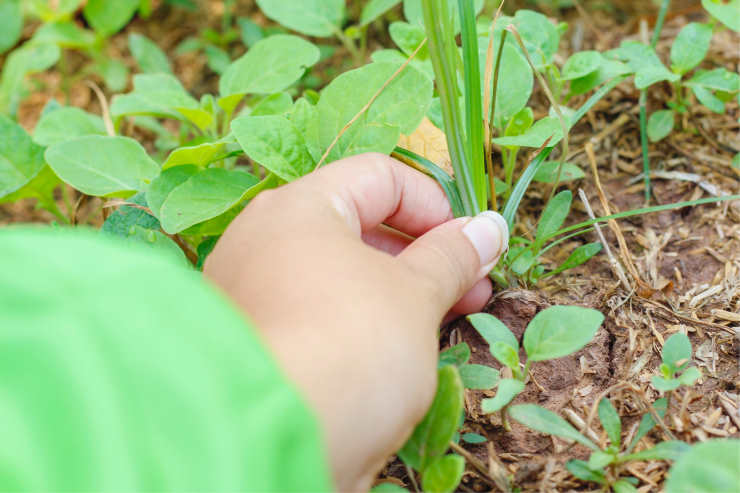
In contrast to other vegetable plants that spread and climb, plants’ tall, angular growth makes them perfect for both the garden bed and containers. These plants are straightforward to grow and care for. It is better to plant eggplant, a warm-season crop, in the middle to end of spring because it develops swiftly.
Eggplants do well in areas where the summers are long and hot because they love the heat. This does not, however, mean that areas with shorter growing seasons must be without. If you intend to grow them outdoors, you will need a protected area and some cover to give them a good start, even in the South of England.
How to Grow Eggplant From Seed
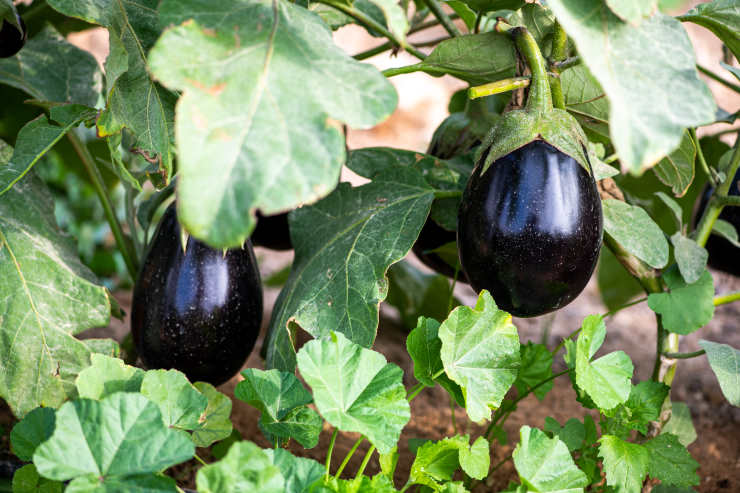
It might be difficult to grow eggplants from seed. When they are germinating, these plants are fussy about the amount of heat they receive. However, if you know what to do, it’s extremely simple. Here is some advice from us to help you produce your eggplants from seeds.
- The seeds can either be started indoors in little containers filled with the seed-starting mix before being transplanted outdoors after the weather has warmed up, or they can be planted straight in the garden soil. Eggplant cannot endure extremely cold temperatures because it is a warm-season crop. You must start them inside your home if you live in a cold region.
- Your local frost period’s latest date is the ideal time to start your plants from seed, roughly 6 to 9 weeks prior. Six to eight weeks after germinating, your seeds are ready to be transplanted into the garden.
- The organic seeds should be sowed a quarter-inch deep and lightly watered in a tray filled with seed starting potting mix. To achieve the best results, fill a seed tray with a growing medium other than soil. Since it could take up to 6 weeks for the seedlings to sprout, only plant one to two seeds per container.
- Place the tray somewhere with an average temperature of 80 to 90 degrees Fahrenheit after planting the eggplant seeds and keep the soil moist to encourage germination. Gently press the compost down, keep it moist, and then cover it with a sheet of glass, polyethylene, or a propagator lid to maintain high humidity. The seeds should then be kept in a warm, bright area between 18 and 21 degrees Celsius.
- They will need light for at least 6 to 8 hours each day. You may always use a grow lamp to help them progress if your home doesn’t get a lot of natural light.
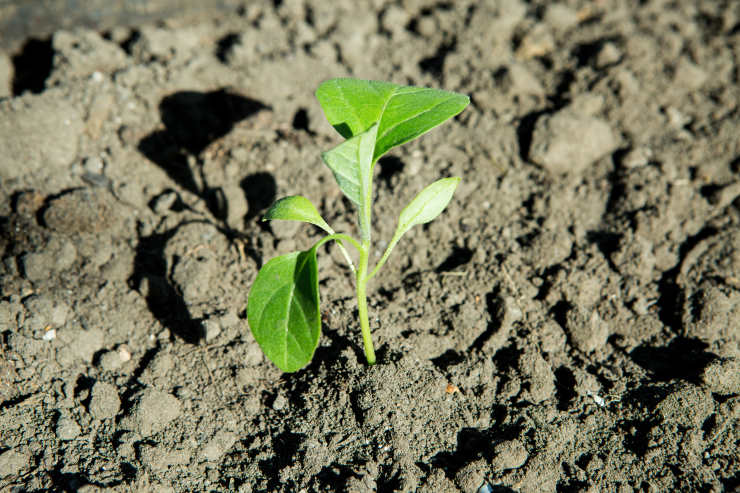
- Cover the pots with a dome until the seedlings are about 2″ tall to keep them warm and wet. Remove the cover as soon as possible after the seedlings are visible through the compost. As soon as the seeds have sprouted, you can transplant the plants into a larger container, such as a large pot, and allow them to develop until they are at least three feet tall.
- The sprouting of eggplant seeds typically takes seven days. After being sown indoors, it is time to transplant the seedlings outside once they begin to emerge.
- You can put them outside when it becomes warmer. Waiting until it is hot out may result in the seeds germinating more quickly, but there is a smaller chance that they will bear fruit.
- You may have observed that your eggplant seedlings are growing much more slowly than their tomato sibling due to the warmer development conditions that eggplant prefer. As springtime draws near, you should see an uptick in their growth pace.
- Egadi seedlings shouldn’t be planted outside until the ground has warmed significantly and there is no longer a threat of frost. Before transplanting, plants must be hardened off. You can do this by moving them to a cooler part of your home or letting them spend brief periods outside during the day. In zones 7 and higher, the seeds need to be planted out in the spring after the final frost.
- When you plant them, make sure to water them right away. You can also use organic or black plastic mulch to keep the soil warm and moist while preventing weed growth.
- As soon as your plants are young, be sure to treat them using a fertilizer that is heavy in nitrogen. A general fertilizer is sufficient the majority of the time.
- Since you might need to water them twice a day in warmer weather, putting them in a compost that drains freely is important.
How Long for Eggplant to Grow
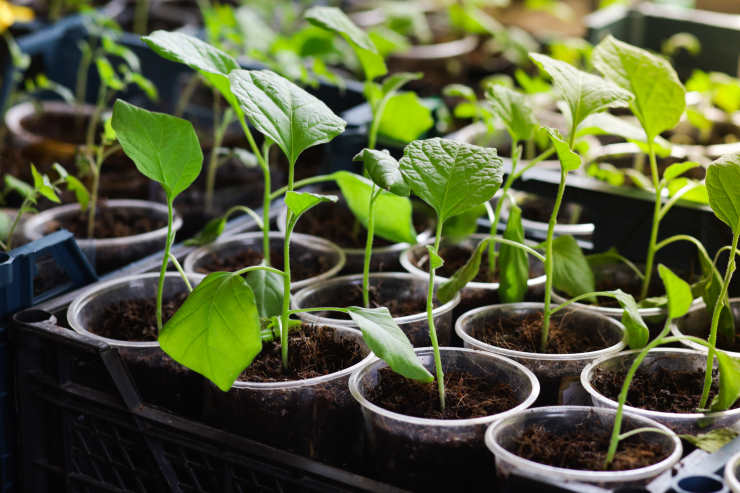
Either mid or late summer is a common time for harvesting eggplant, depending on the cultivar. With some care, the plant should take 65 to 80 days to be ready for harvest. A shiny, wrinkle-free eggplant is best.
So keep an eye out for eggplants that are just starting to ripen on plants. The flavor of eggplant is best when eaten when it is still quite young. A higher yield is achievable if they are grown for a longer period. Depending on the kind, pick your fruit when it is between 4-6″ long. With the right care, your plant will continue to produce fruit until the first frost.
Are Eggplants Easy to Grow From Seed?
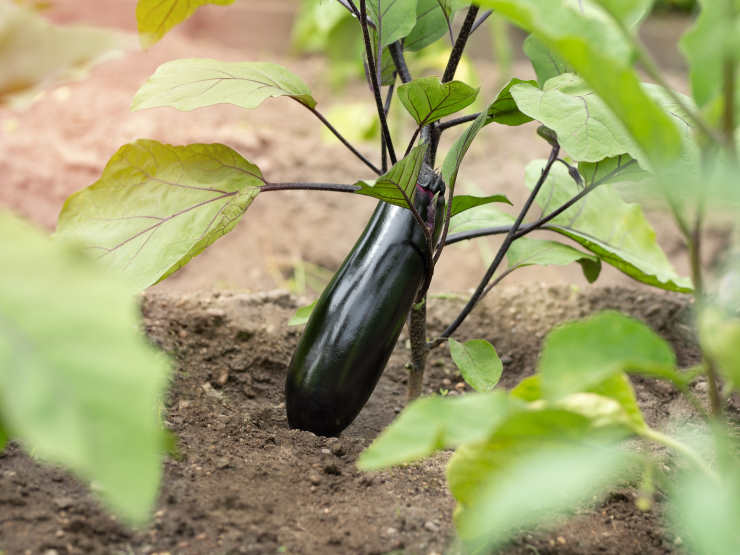
It is inexpensive to grow food from eggplant seeds, and it is enjoyable and straightforward to plant eggplant in a garden or other container. In huge containers, eggplant grows well since it is one of the few crops that doesn’t mind having heated roots as long as the plants receive enough water. It’s quite simple to grow eggplant from seed. They are put into a container or the ground after being grown from seed or bought as saplings. Eggplant is a straightforward plant to grow from seeds as long as the plants have enough heat and light.
All you need is a container, a few handfuls of dirt that can drain well, and some patience. For the plant to grow healthily, it must be planted in warm soil and given the right amount of water, food, and sunlight. Seedlings of eggplant grow faster than those of tomatoes or peppers due to their big leaves. You can plant seeds in the spring and harvest them in the late summer or early fall if you use a split-season planting technique and a long, warm growing season.
Do You Soak Eggplant Seeds Before Planting?
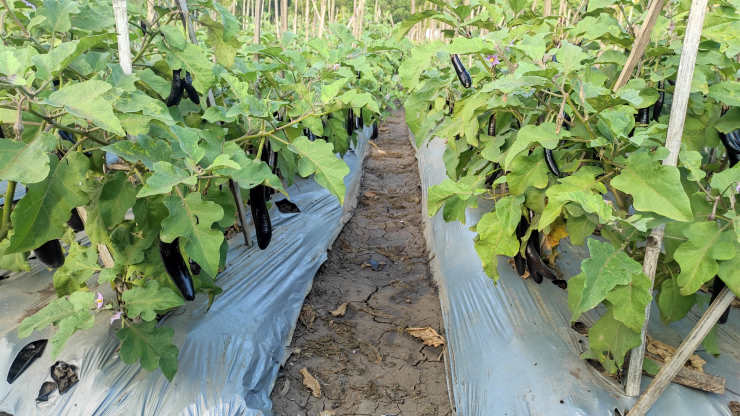
It is, without a doubt, a wise idea to soak your plant seeds before planting. For the best results, immerse your plant seeds in water for approximately 24 hours before planting. More seeds might sprout more quickly as a result of this. Most eggplant seeds grow into plants in 6 to 12 days. For the plant to emerge more easily, it helps to soften the seed’s hard shell. Soaking also promotes a faster germination rate by bringing the seedlings closer to the ideal moisture content for growth.
It is advised to wait for 6 to 8 weeks after soaking them before transplanting them outside. When putting seeds indoors or in small containers, use organic potting soil. If you don’t have an airtight container, break up the earth with a garden hoe and scoop out as much of it as you can. After removing all soil and debris from your container, it is time to plant your vegetable seeds.
Months of Eggplant
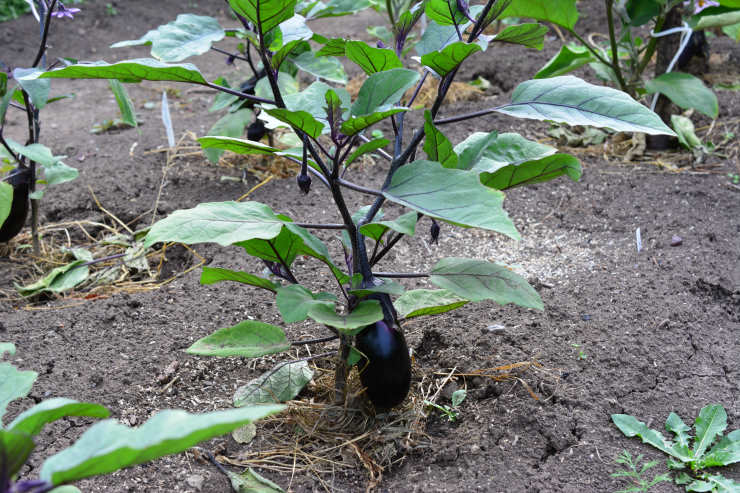
In the summer, eggplant is a common vegetable. The spring is when they will start to flow, and they will continue to produce fruit until the fall. Either produced as an annual or a perennial in tropical climates, eggplants are a common vegetable. If you live in a tropical country, you can start whenever you choose between February and October. Till the end of the summer, eggplants can be grown. Frost is not a big problem if you have a greenhouse or playhouse for your plants.
To thrive, these plants need warm soil of at least 50 degrees Fahrenheit. The best time to plant eggplant is in the late spring. Start indoor seedlings eight to nine weeks before your area’s last projected spring frost date. Due to the long growing season of eggplants, you should start them indoors about eight weeks before your region’s last day of frost.
Conclusion
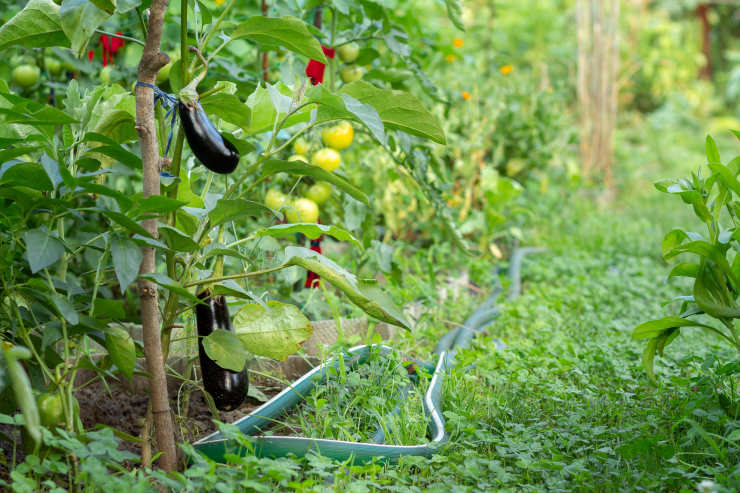
Growing your food from seeds is an excellent way to get organic fruits and vegetables while saving money. However, if you live in a cool area, it is crucial to put the seeds inside due to the long growing season of plants. We may conclude that eggplants are lovely and an excellent dietary choice and that including them in our diet will have several benefits. The only challenging part of growing these plants is patiently waiting for the product to be gathered.
The cultivation of eggplant is more challenging than other nightshades, even though it is a beautiful and valuable crop. With a few ideas, you can discover how to grow your eggplant in the garden. Understanding and mastering how to grow eggplant from seed, as well as what to do in the event of unforeseen weather changes are essential. It is essential to know how to properly care for these plants by providing them with food and water.
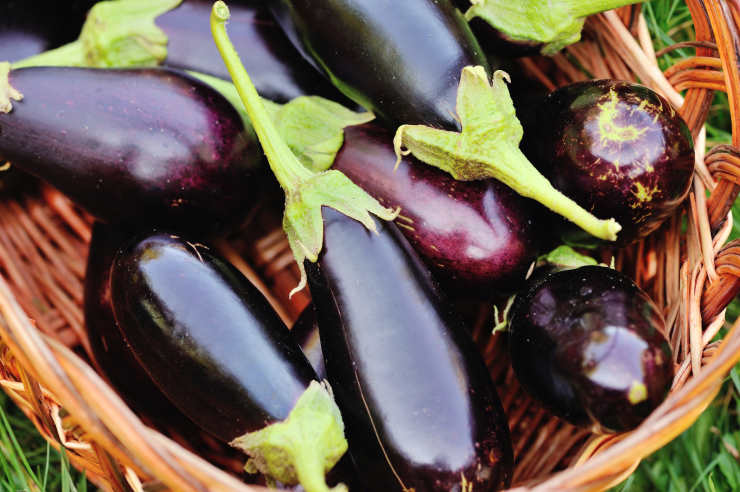
Check the plant’s size, type, and variety before allowing it to grow. Always start early if seed germination is something you are anticipating. Start inside at least three weeks before the last frost. The seedlings are given time to develop before being transplanted as a result.
If you like eggplants, it would be worthwhile to grow your own. Nothing compares to the sensation and flavor of something that has just been picked from your garden, as is true with the majority of fruits and vegetables. We hope this article will provide some helpful answers on how to grow eggplant from seed.
You may also be interested in:


